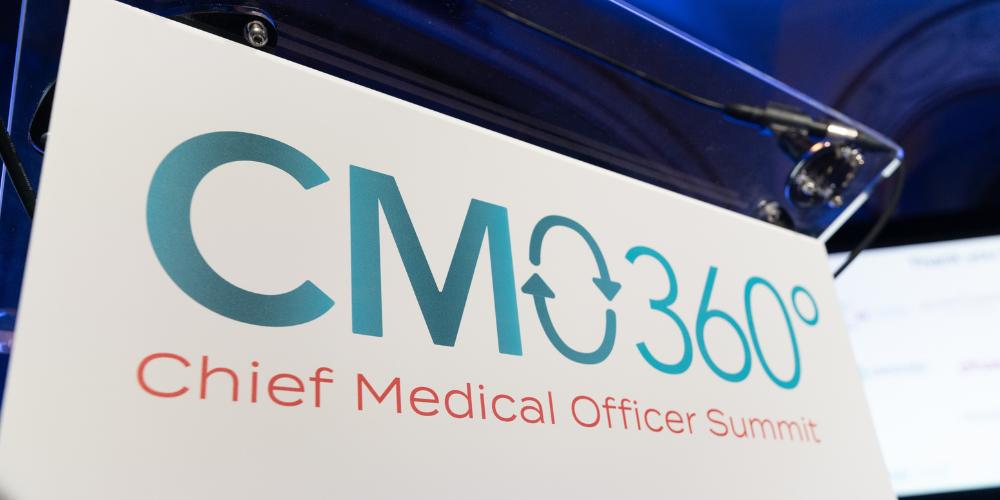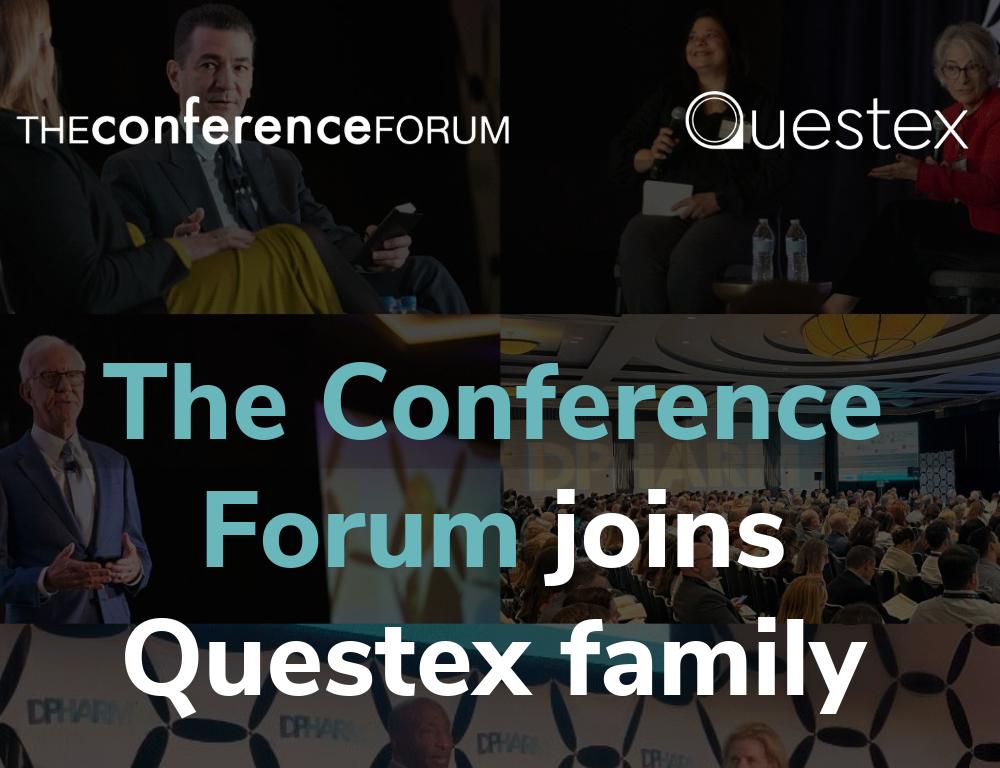
Nushmia Khokhar, MD, is the CMO of Umoja Biopharma.
What does your day-to-day look like as CMO of Umoja BioPharma?
My day-to-day can be very different. As CMO you wear several hats, including medical, regulatory, science and business, so on a given day I could be involved in conversations related to any or all of these. I enjoy that we have a fast paced multifaceted environment and no two days are alike.
We have scheduled one-on-one and team meetings for specific days of the week. Otherwise, it’s catching up more informally with team members and looking to see how they are progressing with their work and touching base with members of the leadership team as well.
As someone who joined Umoja in April 2021, how has your interviewing and onboarding experience been different from pre-COVID?
Umoja Biopharma is headquartered in Seattle and I was actually living in London at the time I interviewed and joined the company and currently working remotely in New Jersey. I would say we have adapted really well!
All of the interviews and conversations were done virtually. But the process was very smooth. It was slightly less formal than in person. I appreciated that everyone was as prepared in terms of knowing my background. I was prepared with some anticipated questions. There weren’t endless rounds of interviews. There was nimbleness in terms of decision-making. Prior to COVID, it would have been a lot more formal including travel, which can be time consuming. And if you have two days filled with interviews, you need to clear out your schedule and it can be exhausting. Logistically, this was much easier.
This may be a testament to the personalities I interviewed with, but I don’t think a lot was lost in the video call interface. I think people’s personalities came across nicely. That was part of my decision making as well.
"Companies should be mindful to provide home-office setup and guidance. To me, a red flag would be companies not providing reasonable support and flexibility for the home working environment or adequate safety guidelines for those that need to work in facilities."
For someone looking for a new role, are there new red flags with remote working?
I can’t say that there are any specific red flags around COVID remote working but I think one of the things I would recommend is that given where we are in the pandemic and the uncertainty of the foreseeable future, companies will have to be very open-minded in terms of their work environment. I think it’s a little too early for a company to require people to live in a certain location or come to the office. Obviously, it’s different for our lab-based colleagues or those working in manufacturing facilities who need to come in person.
Additionally, companies should be mindful to provide home-office setup and guidance. For example, just because we’re working from home doesn’t mean we should be working 24/7. To me, a red flag would be companies not providing reasonable support and flexibility for the home working environment or adequate safety guidelines for those that need to work in facilities.
What has the first hundred days as a CMO been like?
I am a first time CMO and it is fantastic. I love the work environment. I think joining Umoja was absolutely the right decision. As a young company, working remotely with the new and nuanced challenges of COVID, it is a very dynamic environment. The innovation, science and passion is still moving at a really exciting pace despite COVID-related delays. I have felt nothing but great energy and enthusiasm from people, putting that into their work. This is evidenced by how high functioning our teams are and the amount of data they are generating.
Within my first three months, I had to think about how I was going to build my teams and the clinical infrastructure within Umoja. Bearing in mind that our work environment is not going to change for the foreseeable future, how do we maintain this enthusiasm and good working environment? It is not automatic.
Other than that, it’s to understand the science and technology platforms and how they are all going to be integrated to improve upon cancer immunotherapies and specifically CAR-T cell therapies. It’s really been a joy to delve into the science with everyone in the company and to start to put these plans in motion.
How do you prioritize within your role as the CMO?
That is one of the first things to do. Given that Umoja is still a preclinical stage company, I have some time to prioritize and plan. My first priority was to understand the lay of the land and current capabilities. As CMO, I need to understand if there are any key gaps in personnel or planning given the timelines of the company.
After that, it was to understand the team structure already in place. I needed to know how they were doing and how people felt and if I needed to step in and consider any changes.
Now I want to look for key personnel to hire because our company is growing quite nicely. I need to make sure we have the key people and hire talent in a timely fashion to keep that momentum growing.
"Led by the leadership team, almost everyone has their cameras on during meetings. People are very punctual in terms of meeting start and stop times. We are trying to implement things like having enough time between meetings to allow people to take a break."
How do you maintain that enthusiasm and ensure that remote workers feel like part of the team?
We’re not a large company but we are growing rapidly. First, we need people to feel as integrated as possible. We are putting in concentrated efforts towards diversity, equity and inclusion. Hiring and becoming regionally distributed shouldn’t sacrifice the culture of the company and the tight project teams.
Even working remotely, there is a strong sense of unity and of working together. Led by the leadership team, almost everyone has their cameras on during meetings. People are very punctual in terms of meeting start and stop times. We are trying to implement things like having enough time between meetings to allow people to take a break. We have also instituted a weekly Friday meeting with the entire company where we go over the accomplishments, shoutouts and the good and bad of the week. Everyone from the CEO to the newest hire are encouraged to attend and I think we have around 90% attendance. That has been a great effort.
We also actively announce all new hires with a little bit of personal information about them. New hires coming in would usually meet with people over a coffee break or in meeting rooms so every time there is a new hire, within a few days of onboarding, we send out a blurb to the entire company about their hobbies, favorite karaoke songs and whatever else they’d like to share.
The teams, with their project leaders, have done an incredible job of making sure that one-on-ones are kept in place as needed and that meetings are focused while allowing people to participate as though it was an in-person meeting. We are also mindful not to have too many meetings and not to duplicate efforts. We also actively look for positive and negative feedback from employees so that we can take notice and make changes quickly.
Do you have any examples of feedback that you were able to respond to?
The positive feedback has been around some of the things I’ve said. I can’t think of any specific negative feedback but it’s about reinforcing those values like making a habit that meetings are 50-55 minutes so that people have at least five minutes between meetings. That came from team feedback. We have also gotten feedback around not having meetings for the sake of having meetings. There is a thoughtfulness in terms of the frequency of the meetings and having enough interactions.
As a company that is both growing and expanding regionally to Boulder, Colorado, what will your remote strategy and culture look like going forward?
Umoja is headquartered in Seattle and we are planning to build a state-of-the-art manufacturing facility in the Denver/ Boulder metropolitan area. Those are going to be the two hubs of the company. Most of our teams and growth is happening in the Boulder/Denver area because that’s where the manufacturing capabilities are being built out.
Going forward, we are actively discussing this and it will be an evolving philosophy. Right now, our philosophy is that we will encourage talent where they are and not specifically ask people to be in a specific geographic area other than the people who absolutely need to be. Fortunately, the Seattle and Denver areas are rich in the talent we need. Outside of that, our philosophy is to be agnostic to where people are located geographically and to try to hire the best talent. From the C-suite – including myself – down to our most junior scientists, we are onboarding in a remote environment. We built the first tier of this company remotely and I think we have done incredibly well. We will continue to do that and take these learnings forward.
What are some of those specific learnings?
My learnings have really been through my team members. It’s appreciating that everyone is respectful of meeting start times and endings. Everyone is respectful in terms of being present and engaged. Very little is lost in terms of those dynamic interactions. These small things are actually really important. I can palpably feel the energy of the people I interact with, which is kind of what you look for in an office environment. This tells me that we are on the right track and bringing in the right people.
We want to make sure that people are mindful, even when working from home. Just because you are working in a home office doesn’t mean you are working until 10 pm. Whether people are working in the lab space, manufacturing space or from home, we want them to be mindful that work doesn’t have to stretch throughout the entire day. Otherwise, I think people are very responsible and appreciate that the onus is on them. They maintain their working hours and we are respectful of everyone’s time.
"As CMO, it is important to put data and science into perspective for the investors and larger community. You need to find the right balance between not being too detailed but also explaining it and describing the impact in a way that investors can put into perspective."
A few months after your hire, Umoja had an oversubscribed Series B. How can CMOs show value when interacting with investors?
There are two key elements. The first is how you interact with your CEO. That energy and chemistry is very important. That was one of the things I was looking for in the interview process as well. From my very first conversation with Andy Scharenberg, I knew he was someone I really wanted to work with.
As CMO, it is important to put data and science into perspective for the investors and larger community. You need to find the right balance between not being too detailed but also explaining it and describing the impact in a way that investors can put into perspective. To me, the most important thing is to address the potential of our pipeline and how it is going to change things or move things forward clinically. Being able to translate that for investors is incredibly important.
What skills should someone develop for a first time CMO role and how can those skills be developed?
You build up to something. No one is going to become CMO overnight. In your career path you have positions of increasing responsibility that enable you to pick up the necessary skills. When I left big pharma for small biotech, I was very conscious about what I would like to do next. I always wanted to be the CMO of a biotech startup. Working towards that goal, I tried to pick up necessary skills and not just learn to lead teams of MDs and clinical development but also to interact with scientists, regulatory colleagues and board members, to put the direction of the programs into clinical perspective. Leading up to a CMO role, you want to learn leadership skills, organizational skills, what goes into good decision- making and the ability to find and rely on experts and understand the information you need from them to make the best possible decisions.
In terms of developing the skills, it’s about the role you are in right now. You are provided opportunities within your daily work to build all of those skill sets specially working in cross matrix teams. In my mind, there is no formal training or schooling around this. It is practical knowledge.
I would advise you to see what you like about the people you interact with, like the C-suite leadership team or your most immediate manager. That is how I learned. I picked up what I appreciated about my managers. I thought about which skill sets I would like to have. And if there were certain styles or characteristics I did not appreciate, I consciously made sure not to instill those traits for myself.
Similarly, look at how others around you make decisions. What went into the good decisions? Do your own root-cause analysis for the bad decisions. These skills are there in your day-to-day life in your current position and that is how you build on them. Then you start showing them to yourself and others and people realize that you are ready for the next role or promotion or you can set forward your own goals.








